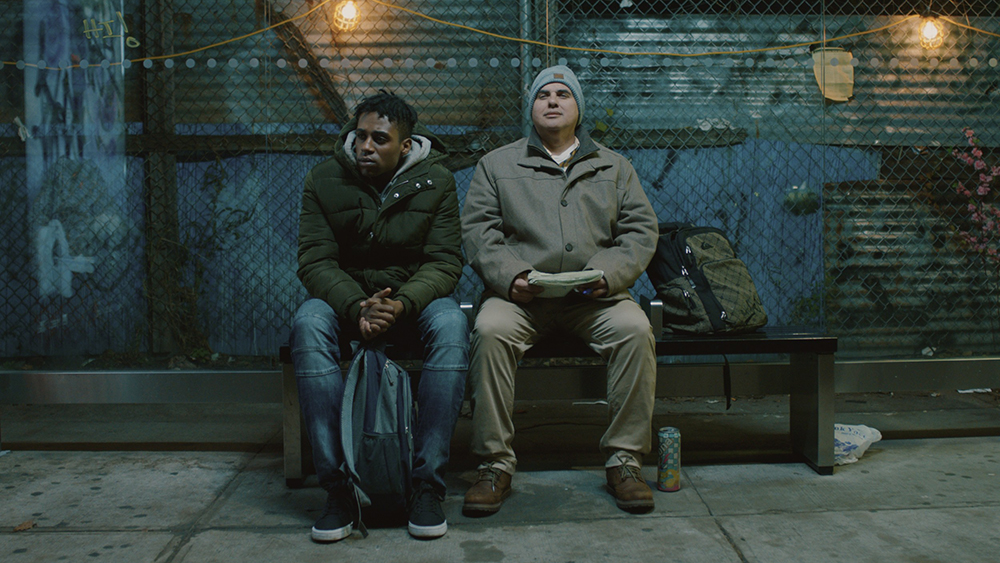Writer-director Doug Roland is an Oscar nominee for his live-action short film “Feeling Through,” which features a deaf-blind character — played by a deaf-blind actor, a first for filmmaking.
The 18-minute film depicts homeless youth Tereek (Steven Prescod) who meets deaf-blind Artie (Robert Tarango), who holds a sign saying he needs help getting to a bus stop.
In a panel discussion with his two cast members and exec producer Marlee Matlin, Roland says, “It’s not a movie about deafblindness, it’s about the power of human connection that happens to include characters from two very different walks of life.”
After seeing the film, Matlin immediately signed on, saying, “It was a no-brainer.” She adds, “It was important for me to be part of the team … and I learned a lot about the deafblind community.”
It’s an impressive tribute from the actress who has been a tireless activist for disability rights since winning the best actress Oscar for “Children of a Lesser God” in 1986.
Challenging the industry myth that hiring people with disabilities adds difficulty to a production, Matlin says, “Some people see these accessibility issues as a nuisance. They’re not, it’s about making a good movie. They’re part of the crew and helps make a movie run more smoothly. I think we need more Doug Rolands out there.” Roland says the authenticity far outweighs any minor inconveniences.
Before covid restrictions, Roland and his partners at the Helen Keller National Center organized a series of screenings that included the film, a documentary about how it was made, and a Q&A with the participants. A large part of the audience was deafblind.
“There were 50 interpreters and support staff at each screening, to provide one-on-one accessibility (for disabled viewers) through tactile ASL (American Sign Language), visual ASL, audio description, open captioning. It was a beautiful way to understand the different ways of experiencing a film.”
When asked about signs of progress in Hollywood, Matlin says, “I’m happy to see greater participation, greater authenticity in the film industry. At the same time, I don’t want this recognition to be the flavor of the month. I want it to continue, I want it to disabled actors should be able to work.”
Tarango says, “‘Feeling Through’ has shown the community at large who we are. we live independently and that we are here. We are part of your everyday life… so why shouldn’t we be represented?”
Asked what Hollywood executives should know, Tarango says, “Simply don’t be afraid. We’re here, we’re ready, we’re willing, and we want to be there. We want to show people who we are. Invite us. Be not afraid.”
“Feeling Through,” the documentary “Connecting the Dots,” and a longer version of the conversation are available on YouTube.





